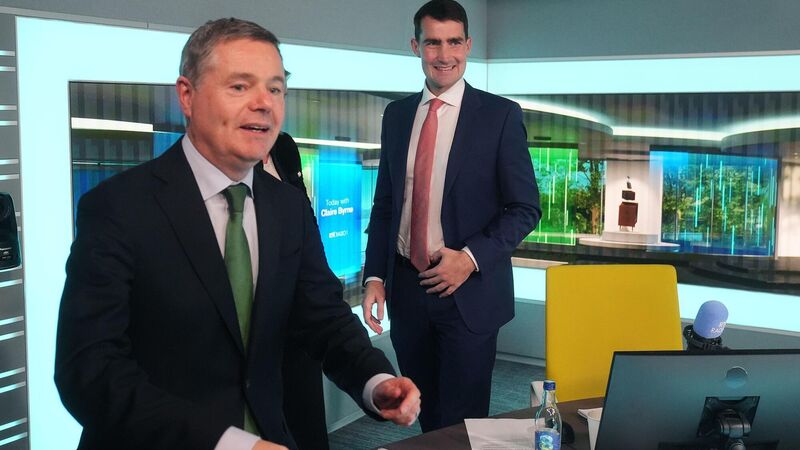Fiscal Council fears Government not taking budgetary planning 'seriously'

Minister for Finance Paschal Donohoe (left) and Minister for Public Expenditure Jack Chambers at RTÉ after the budget speech. The Government may not be taking forward planning "seriously", the Fiscal Council has warned in its preliminary analysis of Budget 2026. Picture: Brian Lawless/PA
The Government is not taking forward planning "seriously", with spending growing much faster than the sustainable growth of the economy, the Fiscal Council has warned in its preliminary analysis of Budget 2026.
The Fiscal Council is the independent statutory body that acts as Ireland’s budgetary watchdog. It comprises a five-member part-time Council appointed by the Minister for Finance and a full-time staff or "secretariat” that supports its work.














